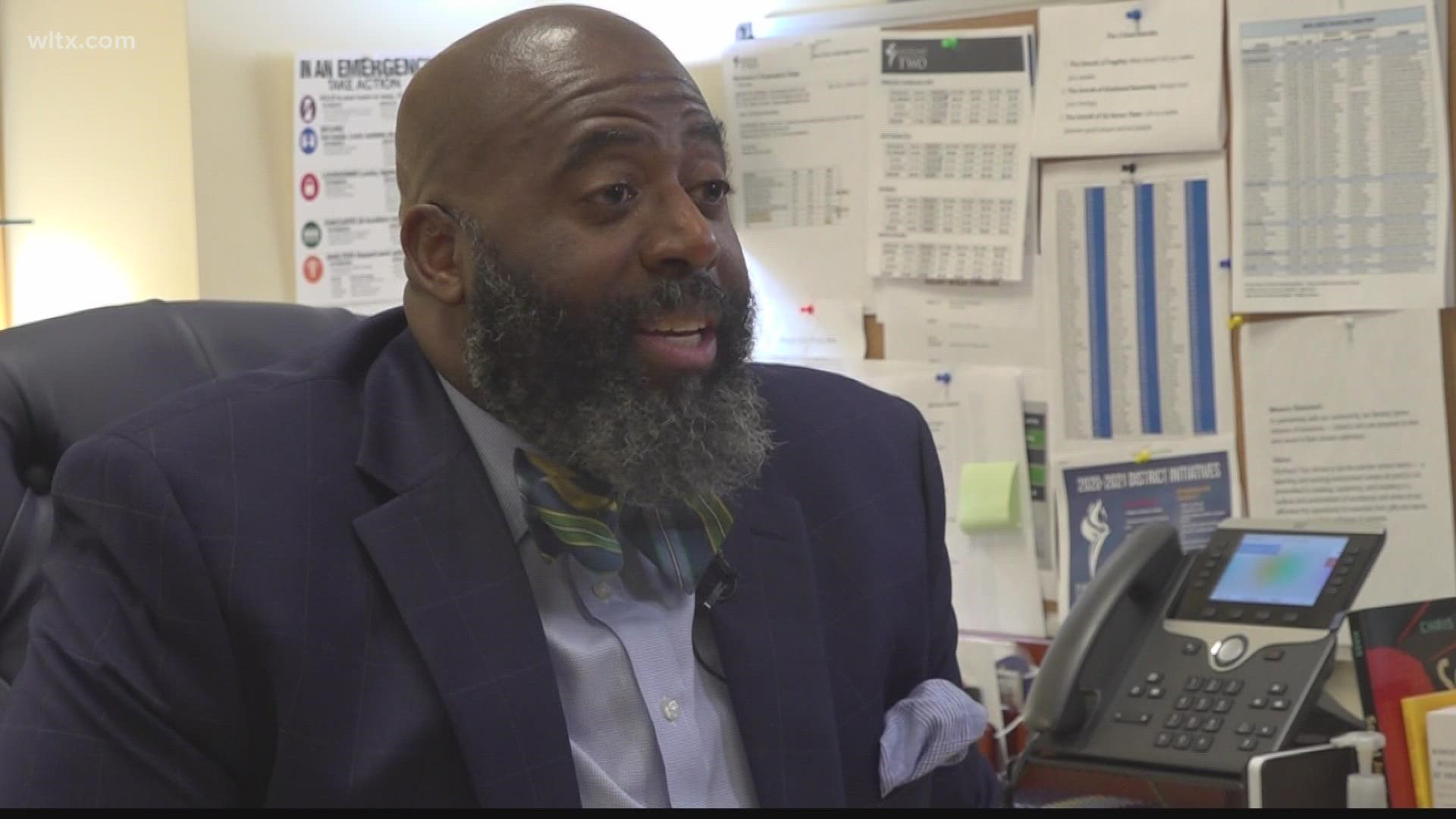COLUMBIA, S.C. — Dr. Baron Davis is out as the Superintendent of Richland School District Two, after he and the school board mutually agreed to separate his employment.
Davis resigned Tuesday at a special called meeting and the board accepted his resignation. The resignation was effective immediately.
An interim superintendent was not immediately named. An agenda item for the meeting said the board would take "receipt of legal advice regarding superintendent contract."
The significant change comes after a shakeup on the school board that happened in the November general election. Even going into the that contest, two members had chosen not to seek reelection. Then after the results came in, Niki Porter, Tamikia Washington, Angela Nash, and Joe Trapp were put on the board, with former board chair Teresa Holmes losing her bid to keep her seat. Linda Agostini, Monica Scott, and Angela Nash remained on the board.
In late November, Agostini was named the new chair, Scott the vice-chair, and Nash the secretary.
Davis, a Columbia native, has over 25 years of experience in education. While at Richland Two, he was previously a principal at Spring Valley High School and was an assistant superintendent in the district. In 2016, he was named superintendent-elect to work alongside Dr. Debbie Hamm, who decided to retire from the district. He officially became superintendent on July 1, 2017.
The district has been dealing with the fallout and scrutiny of a South Carolina Inspector General report that pointedly criticized the district’s finances and the leadership, including the board. The report was ordered by South Carolina Gov. Henry McMaster last year after there were allegations of mismanagement.
The final report was issued last November, just days before the election. It looked at the school from a time period from July 2018 to June 2022.
In it, the inspector found the district didn’t have a policy on the use of purchasing cards, which led to improper use of funds, and sometimes comingled in the district with District Two foundation bank accounts. It also said that same foundation did not supply an annual audit.
But some of the harshest criticism came for the board itself. The report called them “dysfunctional” and questioned if they understood their role in overseeing the district. And said that during meeting they only focused on academic issues 14.2% of the time.
“Member conduct fostered a hostile environment, which created reputational, operational, and legal risk and harmed District operations, fiscal affairs, and human capital management,” the authors wrote.
The district said there had been no intentional wrongdoing in response to the report.

